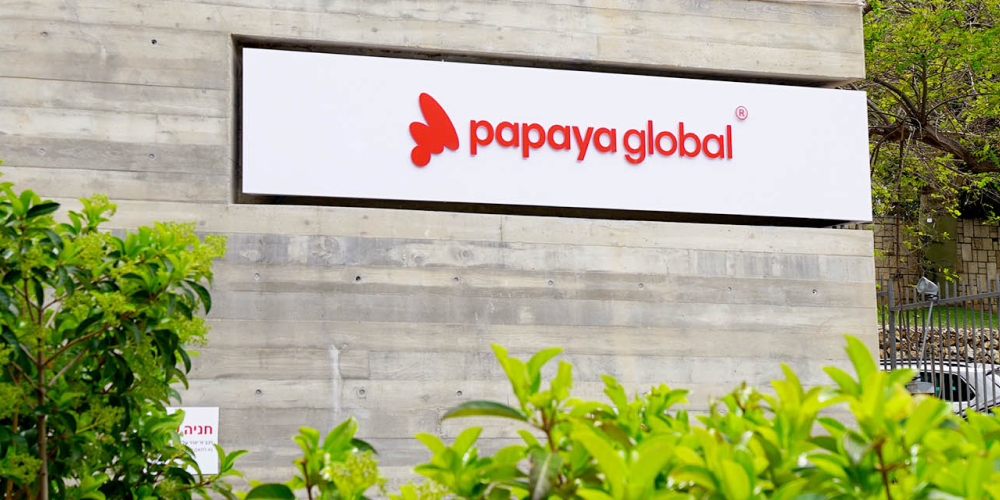
Industry:Banking and Financial Services
Client:Papaya Global
Region:Other Regions
Papaya Global accelerates profitable growth with automation

15
automations
600,000
transactions handled by robots each year
7%
more payrolls processed daily
Client Overview
Based in Israel, Papaya Global is the world’s first integrated, licensed, and regulated global payroll and payments system. The company supports £billions in transactions for tens of thousands of people across the world. It does so securely, accurately, and on time, with full compliance and liability
The payroll process is complex, sensitive, and error-prone. It requires the coordination of various departments including HR, finance, and legal. This is compounded by the fact more companies are hiring and employing remotely, processing salaries and delivering payments in various global locations, in different currencies, and following local employment laws.
Processing every wage accurately every single time requires massive effort and involves tedious manual tasks.
On the micro level, missing a payment or getting it wrong simply isn’t an option when employees have bills to pay and essentials to buy. On the macro level, inaccurate or misclassified payroll can affect the organization and the economy. That’s why multinationals partner with Papaya Global, whose technology guarantees accuracy, efficiency, and compliance.
“We connect the company and its employees,” explains Norbert Guez, Head of Business Operations, R&D at Papaya Global. “We receive data from our customers showing salaries. We also source data about tax and local laws. Then we let the customers know what they need to pay to employees along with tax and other deductions.”
When founded, Papaya Global could run these processes manually, but it’s grown exponentially since its beginning in 2016. The sheer volume of data the company manages now is immense. This challenge is compounded by the type of information it receives. “The world is based on very basic technology,” Guez continues. “We’re sent spreadsheets that are all structured differently.” Continuing to process everything manually simply wasn’t possible.
The spark of an automation idea
“I was asked to look into automation,” Guez says with a sparkle in his eye, explaining that he came out of retirement to take on his current role. “At the time, RPA was a buzzword. It was still quite a new technology. We needed to get a pilot going to see how it could alleviate this pain point.”
Guez started with a basic data entry implementation. Customers would send structured information via a form, which a robot would then add to the database. While extremely simple, it taught him an important lesson.
Optimizing robot performance requires consistent data formatting and an effective process, and no human decision-making or exceptions. We expect automation to improve even more as AI developments drive it even farther and becomes more capable.
Norbert Guez • Head of Business Operations, R&D at Papaya Global
This early implementation helped Papaya Global understand the benefits and limitations of the technology at the time. The next step was to explore other opportunities for automation, one of which presented itself in the finance team.
“The finance department would get alerts or emails showing payments had been received from customers, but we needed to match them to the invoices. Members of the team did this manually and it was extremely tedious and time consuming. We created a robot to do it.”
“The automation received the alerts and messages, identified the file types within, and matched the payment accordingly. If there were any validation issues, a team member would be notified to help.”
Introducing automation to a core business function
With two successful automations under his belt, Guez turned his attention to the most pressing issue: Papaya Global's payroll service. “We needed an automation that would receive customer files, understand the salary data within, ensure it was in a consistent format and then enter it into our database.”
The aim was to create a system enabling the business to scale quickly without the associated growth in manual work and costs. In short, it'd drive profitable growth fast. Instead of building a new workforce, Guez aimed to deploy automation to undertake tasks instead, with higher-value management roles to deal with anything the robots couldn’t.
Success that surpasses expectations
It was an instant success. Guez becomes animated when asked how he measured the outcomes he predicted. “How did we know?” he throws up his hands. “Because it was a matter of survival! We couldn’t have scaled and completed all that work without automation.”
He explains that, unlike other businesses, he wasn’t retrofitting robots into an existing team to save time or money. He was creating a new robotic workforce that completed tasks at a scale.
Hiring wasn’t possible. We could not get enough people to do the work at the speed and accuracy we needed. Automation was a game-changer.
Norbert Guez • Head of Business Operations, R&D at Papaya Global
When questioned about time savings, he states that, “The process now takes seconds, not days,” based on a broad understanding of what the manual alternative would be. An added benefit is that the teams at Papaya Global were very accepting of automation.
When asked if there were any reservations from employees, Guez laughs and shakes his head, saying, “We’re not replacing or augmenting existing staff; we’re creating totally new capacity for work to be done. Also, the younger generation expects this type of support.”
Minimizing risk and maximizing compliance
Papaya Global now uses 15 robots, some of which are tasked with handling documents from customer employees. “Payroll is all about people. And people always come with a lot of documents to prove who they are and their tax liabilities, among other things. Handling these is a big job. So, we decided to automate that too.”
Robots now receive documents of all sorts, including PDFs, passport scans, tax letters, and more.
The data within these documents all needs to be added to our database. We’re working on automations to read the documents, extract the content, and classify it properly. There are thousands of these to manage every day.
Norbert Guez • Head of Business Operations, R&D at Papaya Global
Files can’t be blindly processed. They require serious care and attention. “When dealing with personal information like this, we must ensure data security. People can access their files on the database, so adding the wrong passport information into a user’s profile would be a serious mistake.”
Guez has added intelligence to the robots to ensure there are no errors. “This is far better than a manual process because it minimizes risk and maximizes compliance.”
The path to success
Despite building a business on automation, Guez quickly points out limitations, which call for some human touch. “To get the best results,” he reiterates, “You need data hygiene and strong processes.”
Guez offers two other pieces of advice for fast-growing businesses treading a path to profitable growth. Firstly, “Automation can sometimes be seen as the answer to everything. It isn’t. But you can make it solve specific problems. This takes effort and exploration.” By this, he means trying things out and experimenting. This is particularly suited to smaller, agile businesses with fewer manual processes to mine and automate.
Secondly, you need to find a strong local partner. We’ve worked closely with the UiPath team in Israel to support our work. We need to move fast and get answers quickly. Having someone on the ground with you is vital.
Norbert Guez • Head of Business Operations, R&D at Papaya Global
With these wise words to guide him, Guez has built an automation program to be proud of. Because while payroll is complex, sensitive, and error-prone, automation can simplify processes, reduce risk, and eliminate mistakes.
Beyond that, it can also enable forward-thinking leaders to build businesses almost from scratch, scaling at enormous speed without the associated costs of traditionally doing so. With automation on its side, Papaya Global is a fantastic example of profitable growth and a sign of things to come.
Related case studies
Ready for your own case study?
Speak to our team of knowledgeable experts and learn how you can benefit from agentic automation.






